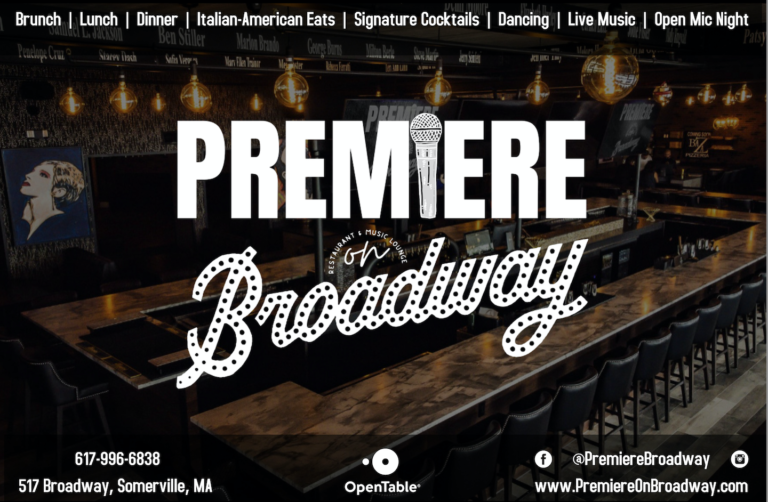This May, the Franklin based SAFE Coalition will recognize its ten-year anniversary at their 3rd annual ‘Evening of Giving’ gala in Lakeview Pavilion. But as SAFE founder Jen Levine is quick to point out, there is so much with addiction and mental health that remains to be done.

IN the quiet suburb of Franklin, Massachusetts, a silent epidemic was brewing in 2014. As Jen Levine returned to her hometown after six years on the West Coast, she noticed something disturbing: former classmates, neighbors, and community members were struggling with addiction and mental health issues at an alarming rate. What began as a simple observation would spark a decade-long mission that has transformed countless lives across southeastern Massachusetts.
The Spark That Ignited Change
“In 2014, I moved back here and realized, through meeting people, going to restaurants, running into these people at CVS, that so many of my classmates that I grew up with were struggling with mental health and substance use,” Levine recalls.
The contrast with her experience in San Diego was stark. “On the West Coast, many of the kids and families I worked with were struggling with gang violence, cocaine use, and there was a lot of transient behavior related to sex trafficking and human trafficking. But I personally didn’t know anyone who was struggling with opioid use at that time, not one person.”
What Levine observed in Franklin was different—heroin was devastating families, and nobody was talking about it. Something had to be done.
From Barbecue Conversation to Community Movement
The story of SAFE Coalition’s birth hinges on a single moment at a summer barbecue. Levine, wrestling with the idea of reaching out to state representative Jeff Roy about creating a support group for families impacted by addiction, found herself hesitating.
“I was like, ‘I don’t want to be the person who comes back in and blows up a community because I’m self-righteous and think this is what needs to happen,'” Levine remembers.
She turned to her host, Donna Spigoro, who works as a community liaison with the New England Patriots. Levine asked tentatively about emailing Rep. Roy, and Donna’s response changed everything: a simple, unwavering “Yes.”
“There wasn’t a ‘yes, but’ or a ‘yes, maybe’—it was just ‘yes,'” Levine explains. “That changed my entire ability. It was a universal shift.”

Armed with this vote of confidence, Levine emailed Rep. Roy, referencing their previous encounters when she had advocated for a girls’ ice hockey team in high school. “My email to Jeff was like, ‘Hey, you might remember me. I’m not here to yell. I really would love to be collaborative. I’ve matured over the last ten years,'” she laughs.
That email led to a meeting, which led to a community forum on June 30, 2015. Levine and Roy expected perhaps ten people to show up. They asked Papa Gino’s to donate pizza and prepared for a small gathering.
More than 300 people arrived.
“We had over 300 people in the community come with their hoods up and their hats on,” Levine says, emphasizing how people tried to hide their identities despite coming to seek help.
“From that night, when 300 people showed up in the suburbs, where everything’s fine, everyone’s happy, right? We all have our houses, our boxes, and then our boxes for our cars, and then our boxes for our tools in the backyard—we knew that people were impacted.”
Building a Coalition from the Ground Up
That night, one attendee would become pivotal to the organization’s future. Jim Derek had dropped his son off at rehab earlier that day, noticed the flashing police sign advertising the opioid community conversation, and decided to attend. He approached Knight afterward, asking how he could get involved. Derek would become SAFE Coalition’s co-founder with Levine.
By October 2015, they had formed a core group of community members who met monthly to assess needs. By the end of that year, they had created a printed booklet titled “What Do We Do Now?” which was distributed to 15 different police departments. The guide provided step-by-step information for families dealing with addiction, from how to talk about it to what to expect at a funeral home if the worst happened.
The organization needed a name, and SAFE was chosen—originally standing for “Supporting Addicts and Families through Empowerment.” Years later, they dropped the acronym and became simply “SAFE Coalition.”
Growing Through Challenges
The early years weren’t easy. describes working “out of my Toyota Corolla that had four missing hubcaps,” driving to people’s houses and meeting at Dunkin’ Donuts. “We were working out of our cars, no question.”
Levine and Derek’s partnership faced challenges as they approached the work from different perspectives—she as a professional in the field, he as a parent of someone struggling with addiction.
“It took years for us to figure out how to do this together, and it was the best challenge we could have ever had,” Levine reflects. “The mission of the work was so important that everyone kept coming back to the table, even if we didn’t always end every meeting completely agreeing and high-fiving and loving life. That is the freaking magic—nobody gave up on each other or the community.”
A Personal Connection
Levine’s commitment to the cause deepened through personal connections. “As soon as this started, my life started getting sprinkled with opioid addiction and loss and people that I knew and loved and cared about,” she says.
In college, her best friend since kindergarten lost a brother in Florida. “At the time, we didn’t know if it was a suicide or an overdose, but in 2006, no one even associated overdose with opioid use,” Knight explains. This early loss planted a seed of awareness about how young people could die from preventable causes.
In 2015, Knight began dating her now husband. She was at first nervous to share that she was involved in a program that supported families impacted by addiction,
“I didn’t know what his thoughts on recovery were and I was hopeful that he would be open to learning even if we didn’t see eye-to-eye.” Levine shared with him that she was unable to go on a date Thursday because she ran a group for parents impacted by opioid use.
“He immediately lit up” she says, “Are you kidding me? There are so many people impacted by this! I love that you are doing this!”
Levine’s husband, a captain and medic in the fire service, has been a driving force behind how to approach youth, how to engage first responder partners, and a collaborative voice in how to understand the disease of addiction from a provider perspective.
“When you meet someone who supports your dreams and encourages you to do more, it changes what you feel is possible”
Evolution and Growth
What began as a response to the opioid crisis has evolved significantly over a decade. In 2019, Levine made the leap to full-time commitment to SAFE Coalition when her husband attended the Fire Academy. Board member Brian Hamlin provided a small office space, telling her, “If you’re going to take a risk on SAFE, I’m going to take a risk on you.”
Levine didn’t take a paycheck for about a year, but the organization grew steadily. Now, SAFE Coalition has 15 staff members and serves 56 communities. Their focus has expanded beyond opioids to address various mental health and substance use issues, particularly among youth.
“By listening to the needs of the community members who are struggling with addiction, we were able to populate programs that supported prevention and education modalities so that they didn’t have to get to opioids in order to get to us,” Levine explains.
Today, opioid work represents only about 15% of what SAFE Coalition does. The majority of their efforts focus on youth programs, family support, and mental health resources.
Innovative Youth Programs
One of SAFE Coalition’s most successful innovations is their school diversion program. In 2019, a local school district approached them about the 200 suspensions they had issued since September for vaping. Levine’s team created a one-day out-of-school suspension diversion program where students caught vaping could attend education sessions instead of being suspended.
The program grew rapidly as other school districts heard about it, and it expanded to address not just nicotine but cannabis vaping as well. Today, their “Up in Smoke” program has evolved into a three-day curriculum covering substance use education, mental health, and restorative justice practices.
“The vast majority of our kids have an immediate family member who’s struggling with addiction,” Levine notes. “93% of our kids have tried to quit in the past and have been unsuccessful.”
In 2023, the Massachusetts Department of Elementary and Secondary Education (DESE) required schools to use diversionary measures prior to suspension, which increased demand for SAFE Coalition’s programs. They now work with 33 different school districts across the state.
New Challenges in a Changing Landscape
The organization has had to adapt to rapid changes in the substance use landscape. The legalization of cannabis in Massachusetts created unexpected challenges, particularly for youth.
“Every single community dealer, whether it’s a kid on a bike or an adult who would deal to adults, now has to 100% solely focus on dealing to kids, because they still have to make a profit,” Levine explains. “Our youth have zero cannabis education in the schools and zero cannabis education at home. And yet every dealer now is only targeting kids, and they’re salespeople.”
The pandemic exacerbated these issues, with children at home struggling with mental health symptoms and able to arrange deliveries through social media platforms like Snapchat. Levine’s team found themselves addressing not just substance use but predatory behavior.
“We had a ton of kids in this community who did TikTok challenges where they’re trying to get rides. We’re like, ‘You guys, you’re doing the job for the traffickers,'” she says. “If you have a dealer, and you build a relationship with your dealer over the last two years, and now your dealer is picking you up at your house and driving you to your friend’s house—that’s trafficking.”
Impact and Recognition
As SAFE Coalition celebrates its 10th anniversary, its impact is evident in the thousands of lives touched. They are now the second-largest distributor of Narcan in Massachusetts and provide critical resources like fentanyl test strips to prevent overdose deaths.
Their annual gala has grown from 120 people at the Black Box in Franklin to a larger venue at Lake View Pavilion. “We wanted to start some kind of legacy-style program where people could learn about SAFE, we could really highlight the work we’ve been doing, but also bring people in the community together,” Levine says of the fundraising event.
What makes SAFE Coalition special is its commitment to confidentiality and accessibility. All services are provided at no cost, with the organization being 100% grant and donor funded.
“If you’re a successful person, man or woman, and you have to ask for help, you really, really don’t want that getting out into the community. And we do that really well,” Levine emphasizes. “If you need legal help, if you need to go to court, there are ways that we can help you so that it is the least publicly aware thing that you would be involved in.”
Looking Forward
After a decade of green lights and growth, SAFE Coalition continues to evolve with the changing needs of its communities. Levine remains humble about the organization’s success but acknowledges the milestone.
“I’m, like, trying to be low-key about it,” she says of the 10-year anniversary, “but in the back of my mind, I’m like, ‘What?!'”
The journey from a Toyota Corolla with missing hubcaps to 15 staff members serving 56 communities is remarkable, but Levine’s focus remains on the work ahead. As new challenges emerge—from cannabis accessibility to human trafficking—SAFE Coalition stands ready to respond with the same community-centered approach that has guided them from the beginning.
“I didn’t have the skill set yet to assess community needs, bring people together,” Levine says of her early days. “I mean, you got 300 people in there in the first meeting!”
That first gathering of hundreds in a suburban high school, where everything was supposed to be “fine,” revealed a truth that continues to drive SAFE Coalition’s mission: behind the picket fences and neat boxes we build around our lives, people are struggling. And when one person has the courage to say “Yes” to helping, communities can heal together.
When Tragedy Hits Home
The work of SAFE Coalition takes on new meaning in the wake of personal loss. On March 9, 2025, the community was shaken by the unexpected passing of Steven Snell, a 52-year-old Norfolk resident known for his “brilliant smile and miles of charm.” For Tony Lampasona, a longtime supporter of SAFE Coalition, the loss of his best friend brought the organization’s mission into sharper focus.
“Steven was this amazing, great guy who people may not go right to thinking, ‘Oh, he has an issue with mental illness,'” Lampasona shares. “This guy’s got everything going for him, you know? I mean, he had the megawatt smile, so handsome, so positive, it was almost annoying at times. But I loved that.”
The two friends shared almost everything in common, including a desire to help others in need as often as they could. This is what initially drew them to support SAFE Coalition’s work.
Steven, who built a successful career as a general contractor with his recognizable SHS Builders logo, became deeply involved with the organization. While Tony supported financially, Steven donated his time—helping with fundraisers, working with board member Brian Hamlin, and supporting various initiatives.
“He was drawn to it big time,” Tony explains. “And I think that says a lot about him and his character.”
Their shared history with SAFE Coalition began several years ago when Steven met Brian Hamlin, a SAFE board member who had lost his own son to addiction-related complications. Upon learning about the organization, Steven immediately called Tony, describing the important work SAFE was doing in the community. The friends committed to helping in their own ways—Tony through financial support and Steven by volunteering his time.
Yet beneath Steven’s positive exterior, there were struggles that many never saw. His passing has reinforced for Tony the importance of breaking the stigma around mental health.
“Mental illness is a serious issue in our country today and in the world, and it affects every single person,” Lampasona says passionately. “We all need to be more cognizant to that and realize there isn’t that one description or that one profile for an individual that is having a difficult time.”
This stigma—the instinct to hide or downplay mental health challenges—is exactly what SAFE Coalition works to combat. The organization’s approach recognizes that everyone, regardless of their outward appearance or circumstances, can struggle with mental health.
“Until that stigma goes away, we’re going to continue to just be blown away and surprised by really bad phone calls,” Lampasona reflects. “I’m super grateful that people like Jen and the people at SAFE Coalition will do the work and put it out there so more people can learn about it, and maybe they head them off early.”
Steven Snell leaves behind his longtime partner Michelle Bixby and her children, his sisters, and a large circle of friends and family. In his obituary, in lieu of flowers, donations were requested to be made to SAFE Coalition—a testament to his belief in their mission and the difference they make in the community.
As SAFE Coalition marks its 10th anniversary, Steven’s story serves as both a heartbreaking reminder of why their work matters and an inspiration to continue expanding their reach. The organization that began with a conversation at a barbecue and a community meeting of 300 people now stands as a vital resource for those who, like Steven, might be fighting battles that others cannot see.
“When you think about SAFE Coalition, don’t automatically think of that junkie or that drug drunk,” Lampasona urges. “Think about people that are performing in life the way that people think they should be. Because that guy with that megawatt smile and his gorgeous wife and money—that guy is struggling too.”












